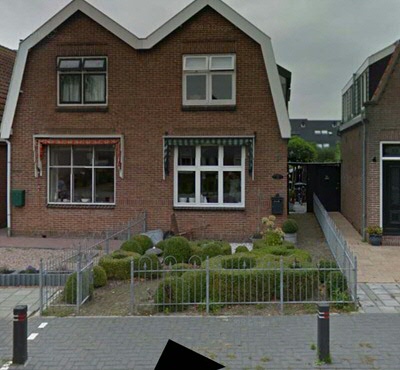‘Landjepik’ door burgers van gemeentegrond groot probleem
Waarschijnlijk honderdduizenden huishoudens in Nederland maken illegaal gebruik van gemeentegrond. Dat concludeert Björn Hoops, onderzoeker bij de Faculteit Rechtsgeleerdheid van de Rijksuniversiteit Groningen. Volgens hem is een wetswijziging nodig om het verlies van overheidsgrond en conflicten te voorkomen. Het onderzoeksrapport ‘Landjepik in Nederland’ van Hoops komt deze week uit.
Hoops onderzocht in vijf Nederlandse gemeenten het illegaal gebruik van gemeentegrond. ‘Illegaal gebruik houdt in dat een burger gemeentegrond gebruikt zonder eigenaar te zijn en zonder met de gemeente afspraken hierover te hebben,’ vertelt hij. In vier van de vijf gemeenten heeft hij kunnen vaststellen hoe vaak dit voorkomt. Tussen 8% en 80% van de huishoudens waren daar betrokken bij ‘landjepik’. *) ‘Gemeenten voldoen op grote schaal niet aan hun verplichting om hun eigendom te beschermen. Stel, je neemt het laagste hiervoor genoemde percentage als nationaal gemiddelde, dan zou dat betekenen dat landelijk ten minste 600.000 huishoudens (1.320.000 personen) zonder afspraken gebruikmaken van gemeente- of andere overheidsgrond.’
Meer dan 400m2 extra tuin
In bijna alle gevallen gebruiken mensen de gemeentegrond om de tuin, de oprit of de woning uit te breiden. Niet alleen gemeentegroen, maar ook stoepen, woonerven, fietspaden en openbare wegen worden op grote schaal getrokken bij particuliere tuinen. Gemiddeld betreft het 20 tot 45m2 per geval, maar soms meer dan 400m2.

Grond en geld kwijt
Binnen de Nederlandse wet is het mogelijk dat een gebruiker van andermans en dus ook gemeentegrond daar eigenaar van wordt. Zelfs als die gebruiker de grond met opzet inpikt, kan deze toch na 20 jaar eigenaar worden. De gemeente staat dan met lege handen: eerst wordt de grond aan zijn publieke functie onttrokken en daarna verliest de gemeente ook nog de eigendom. Een groot aantal gemeenten is begonnen om het gebruik van hun grond te inventariseren en besteedt tienduizenden euro’s aan de inventarisatie en de benadering van de illegale grondgebruikers, tussen 500 en 850 euro's per dossier.
Verkeersveiligheid en onderhoud in geding
Omdat de grond deel uitmaakt van de privésfeer van de burgers, lopen de emoties vaak hoog op en zijn geschillen tussen gemeente en burger waarschijnlijk. ‘Wat bovendien voor problemen zorgt, en in de toekomst voor veel meer problemen kan gaan zorgen, is het feit dat met name bermen en stoepen van groot belang zijn voor de verkeersveiligheid en het onderhoud van kabels en nutsleidingen,’ zo geeft Hoops aan. ‘Verder kan het verlies van publieke grond de uitvoering van belangrijke woningbouwprojecten vertragen of onnodig duur maken. Denk bijvoorbeeld aan het aanleggen van een netwerk voor warmtepompen of voor laadpalen voor elektrische auto’s bij een parkeerplaats.”
Wetswijziging
Een wijziging van de wetgeving over verjaringsverkrijging is het overwegen waard om het verlies van overheidsgrond en conflicten te voorkomen, vindt Hoops. ‘Er zijn meerdere opties om te verzekeren dat de gemeente toegang houdt tot de gronden met een publieke functie. De wetgever zou bijvoorbeeld de verjaringsverkrijging van dergelijke gronden kunnen uitsluiten (zoals in België, Frankrijk of Italië).’
*) Uit gegevens van gemeenten die niet volledig meewerkten maar wel globale cijfers opstuurden, kwamen vergelijkbare percentages naar voren. De percentages van ‘landjepikkers’ lopen erg uiteen tussen de gemeentes vanwege het verschil in handhavingsbeleid, de inrichting van woonwijken en de oorspronkelijke functie van de grond.
Meer informatie
- Björn Hoops
- Onderzoeksrapport ‘Landjepik in Nederland’
Meer nieuws
-
08 december 2025
Kleurrijke Kopstukken: Bert Röling
